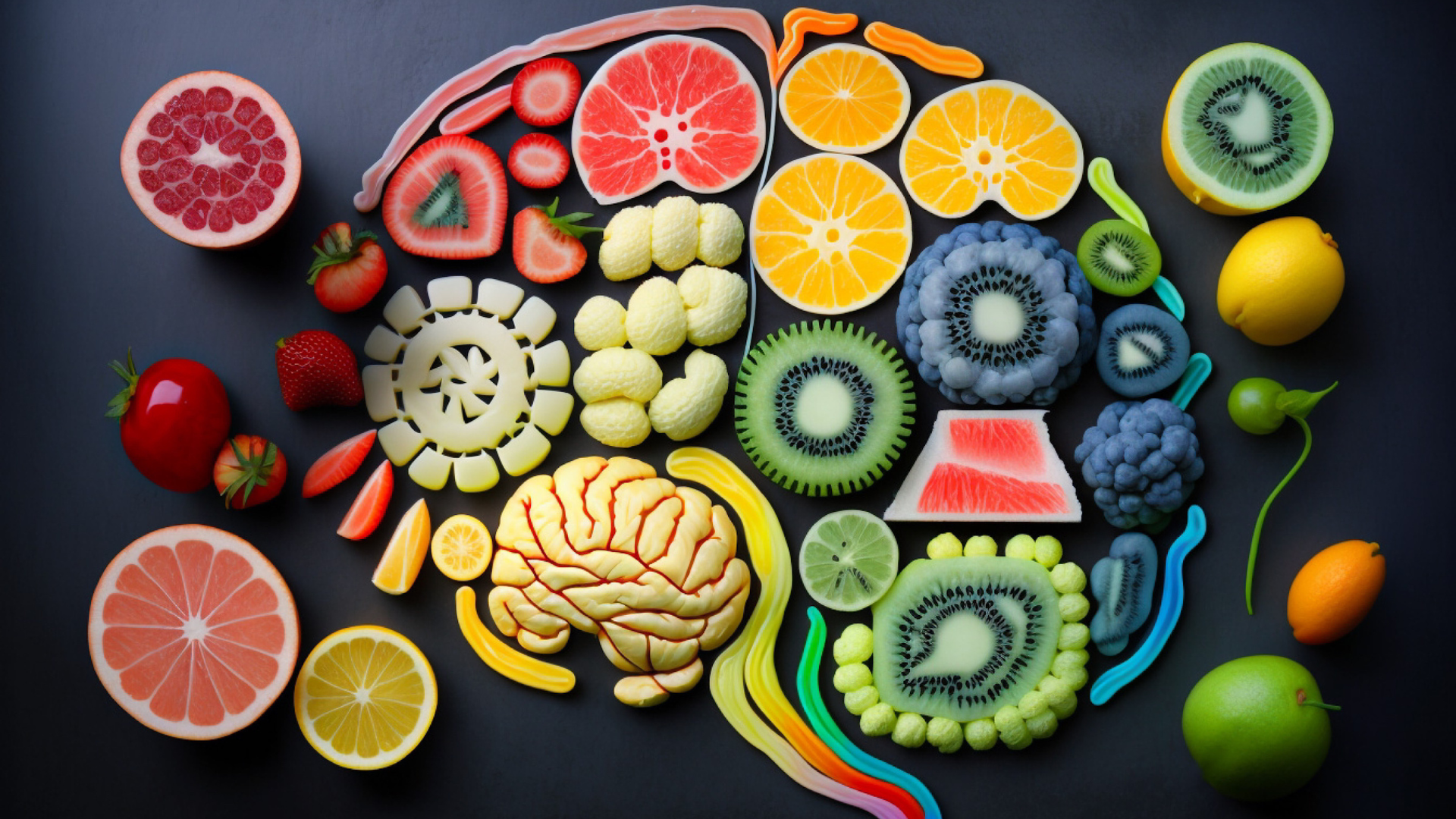

Food for Thought: How Diet Impacts Your Mental Health
In a world where mental health is as important as physical well-being, understanding the impact of your eating choices is essential. Today we’ll dive into how smart food choices nourish our body and fortify our mental health. Our in-house nutrition expert, Dr. Emily Fritz, says, “The food you eat not only fuels your body but also fuels your mind. Understanding this connection is vital to anyone’s health journey.” We’ll explore how our healthy eating choices can help regulate blood sugar levels, improve mood, increase satiety, and ultimately set us up for both personal and professional success.
A roller coaster of blood sugar – and emotions
Blood sugar levels have a direct impact on our mood and energy. Blood sugar spikes, and the crashes that follow, can lead to mood swings and irritability because our brain depends on a consistent supply of energy for our emotional well-being. The powerful combination of protein and fiber can help us avoid energy peaks and valleys that impact our bloodstream and our brain. Dr. Emily highlights, “Most people don’t think about fiber and protein for mental health, but they’re underrated. They can be a game-changer for your mental wellbeing because they help both your blood sugar and mood stay stable after you eat.” Foods rich in fiber and protein, like Rivalz, can keep our blood sugar levels steady. Look to get additional fiber from whole grains, fruits, and vegetables, combined with healthy sources of animal and plant protein that not only provide sustained energy but also help in maintaining a balanced mood.
Importance of Micronutrients in Mental Health
Getting enough micronutrients or vitamins and minerals can also have a positive impact on our mental health. The American Journal of Psychiatry published findings that a diet lacking in essential micronutrients is a risk factor for mental health issues. Dr. Emily, advises, “Eating enough vitamins and minerals, such as B vitamins, magnesium, iron, zinc, and calcium, helps keep our brain healthy and improves our mood. These nutrients are key building blocks for brain chemicals called neurotransmitters that help our brain work well.” Incorporating a variety of nutrient-dense foods like leafy greens, nuts, and fatty fish can significantly improve mental well-being.
Protein's Impact on Hunger and Mental Wellbeing
Protein is a key macronutrient in regulating hunger and, by extension, mood. Research has shown that higher protein intake can lead to increased feelings of fullness and reduced cravings. Stability in hunger levels is crucial for mental clarity and avoiding irritability. This is true for people of all ages! Dr. Emily reminded us, “Protein is not just for athletes. We all know what hunger can do to our emotional state- especially if you’ve ever used the term ‘Hangry’. Protein helps keep us feeling full and keeps the hanger away.” Including healthy proteins like lean meats, legumes, and dairy in meals can help maintain this balance. Rivalz packs 8 grams of plant-powered protein per serving to keep you feeling full so you can focus on what really matters.
How Smart Eating Choices Set You Up for Success
Follow these tips to set yourself up for success so you can stay sharp, focused, and emotionally balanced throughout the day: Include protein and fiber in your food choices to help keep your blood sugar steady, get enough vitamins and minerals to support your brain, and avoid getting overly hungry.
Dr. Emily added, “Smart eating is not just about physical health; you should also think of it as the cornerstone of mental and emotional wellbeing so you can crush each day.” The interplay of fiber, micronutrients, and protein in our diet paves the way for a healthier, happier mind.
Want more information about mental health and nutrition? Check out these studies!
Nutrition & Behavioral Health Disorders / Nutrition & Mental Health: A Review of Current Knowledge About the Impact of Diet on Mental Health / That Salad Isn't Just Good for Your Nutrition - it May Help Stave Off Depression
This article has been fact-checked by Dr. Emily Fritz. About Dr. Emily Fritz:
Dr. Emily Fritz earned her M.S. and Ph.D. at South Dakota State University in Exercise, Nutrition and Food Science. Emily joins Rivalz from her role as VP of Scientific Affairs at the Beachbody Company and is passionate about advancing scientific discovery for companies leading the way in human health and nutrition. In addition to her commercial work, she has authored, presented, and collaborated on many research studies ranging from large National Institutes of Health (NIH) studies to leading student research projects during her time as an Assistant Professor at Simpson College in Indianola, IA.
